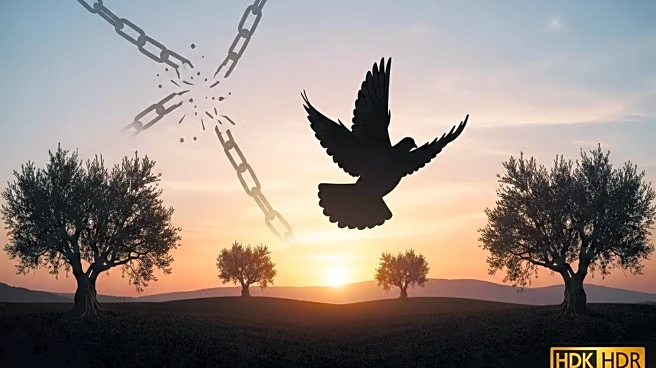What's Happening?
Residents of Gaza are returning home following a ceasefire agreement between Israel and Hamas. This development comes as families anticipate the release of hostages taken over two years ago. The ceasefire marks a temporary halt in hostilities, allowing for some semblance of normalcy to return to the region. The situation remains tense, with the broader geopolitical implications of the ceasefire yet to unfold fully.
Why It's Important?
The ceasefire is a critical step towards reducing violence and instability in the region, offering a chance for humanitarian relief and rebuilding efforts in Gaza. It impacts regional politics, potentially influencing future negotiations and peace efforts between Israel and Hamas. The return of hostages could serve as a significant diplomatic gesture, fostering goodwill and trust necessary for long-term peace. The situation affects international relations, with various countries monitoring developments closely.
What's Next?
The ceasefire may lead to renewed peace talks, with international mediators potentially playing a role in facilitating dialogue between the parties. Humanitarian organizations are likely to increase their presence in Gaza, providing aid and support to affected communities. The release of hostages could be a pivotal moment, influencing public opinion and political strategies in the region.
Beyond the Headlines
The ceasefire raises ethical questions about the treatment of civilians in conflict zones and the responsibilities of warring parties to protect non-combatants. It also highlights the cultural and societal impacts of prolonged conflict, affecting generations and shaping the narratives of communities involved.









